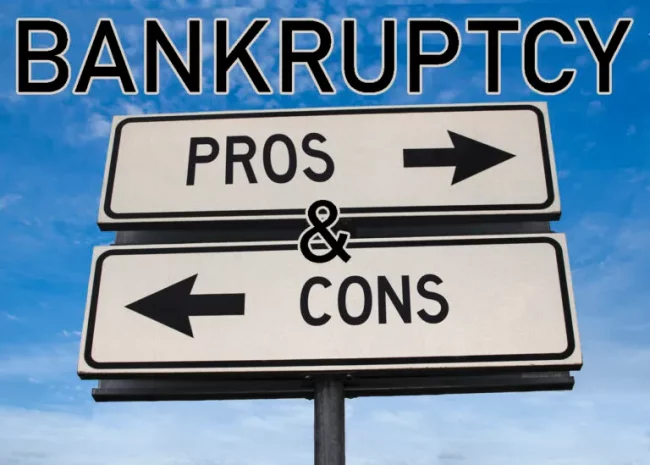
Bankruptcy is a legal process that provides individuals and businesses with financial relief when they cannot repay their debts. Knowing the benefits and drawbacks of bankruptcy will help you make a well-informed decision about your financial future.
What is bankruptcy?
Bankruptcy is a legal status that acknowledges an individual’s or business’s inability to meet financial obligations. It is a court-supervised process that allows debtors to eliminate or restructure their debts while offering protection from creditor actions. A Memphis bankruptcy lawyer can offer the knowledge and guidance you need to file for bankruptcy with confidence.
Types of bankruptcy
There are different types of bankruptcy, but the two most common for individuals are Chapter 7 and Chapter 13. Chapter 7 bankruptcy involves liquidating assets to repay creditors, while Chapter 13 bankruptcy involves creating a repayment plan based on the debtor’s income.
Bankruptcy process
Filing a petition with the court is the first step to declaring bankruptcy. Disclosure of financial information, participation in credit counseling, and compliance with applicable laws are all part of the process. A bankruptcy trustee is appointed to monitor a bankruptcy case and guarantee that all parties are treated fairly.
The pros of filing for bankruptcy
Debt relief and a fresh start
Filing for bankruptcy can provide much-needed debt relief and a new financial beginning. Bankruptcy allows individuals to discharge or restructure their debts, allowing them to regain control over their finances and rebuild their credit.
Automatic stay
An automatic stay is put in place upon filing a bankruptcy petition, preventing creditors from continuing with any collection efforts. It means they cannot contact you, garnish your wages, or initiate lawsuits against you. The automatic stay provides much-needed breathing room to assess your financial situation and plan for the future.
Protection of assets
Bankruptcy laws offer certain exemptions that protect specific assets from being seized by creditors. These exemptions vary depending on the bankruptcy type and your state’s laws. By filing for bankruptcy, you can retain essential assets such as your home, car, or retirement savings.
The cons of filing for bankruptcy
Negative impact on credit score
Filing for bankruptcy has a significant negative impact on your credit score. It remains on your credit report for several years, making it challenging to obtain new credit or loans. However, you can gradually rebuild your credit score with responsible financial management.
Public record
Bankruptcy filings are public records, meaning they are accessible to the general public. This lack of privacy can be a drawback for individuals who value financial confidentiality. However, it’s important to remember that bankruptcy is a legal process designed to provide relief and is not something to be ashamed of.
Limited access to credit
After filing for bankruptcy, obtaining credit in the immediate aftermath may be difficult. Lenders and creditors may perceive individuals who have filed for bankruptcy as high-risk borrowers. However, as you demonstrate responsible financial behavior over time, you can start rebuilding your creditworthiness.
Making an informed decision
Evaluating alternatives to bankruptcy
Before deciding on bankruptcy, it is crucial to explore alternative options. These alternatives may include negotiating with creditors, debt consolidation, or credit counseling. When you have explored all your options, you can make a more calculated choice that fits your budget.
Consulting with a bankruptcy attorney
Bankruptcy law is complex, and seeking the guidance of a qualified bankruptcy attorney is highly recommended. An attorney can provide expert advice, evaluate your financial situation, and guide you through bankruptcy. They can give you advice tailored to your situation and help you weigh the pros and cons.
Weighing the pros and cons
Debtors considering bankruptcy should weigh the benefits against the costs before deciding. Consider the potential debt relief, protection of assets, and automatic stay against the negative impact on credit, public record, and limited access to credit. Weighing these factors will help determine whether bankruptcy is the right choice for your financial future.
Final thoughts
Filing for bankruptcy is a major choice with long-term consequences. While it offers relief from excessive debt and a fresh start, it has certain pitfalls. Understanding the benefits and drawbacks of filing for bankruptcy, investigating other choices, and getting expert advice will assist you in making a knowledgeable choice that will put you on the road to financial recovery.
Stay Connect with Get News 360
